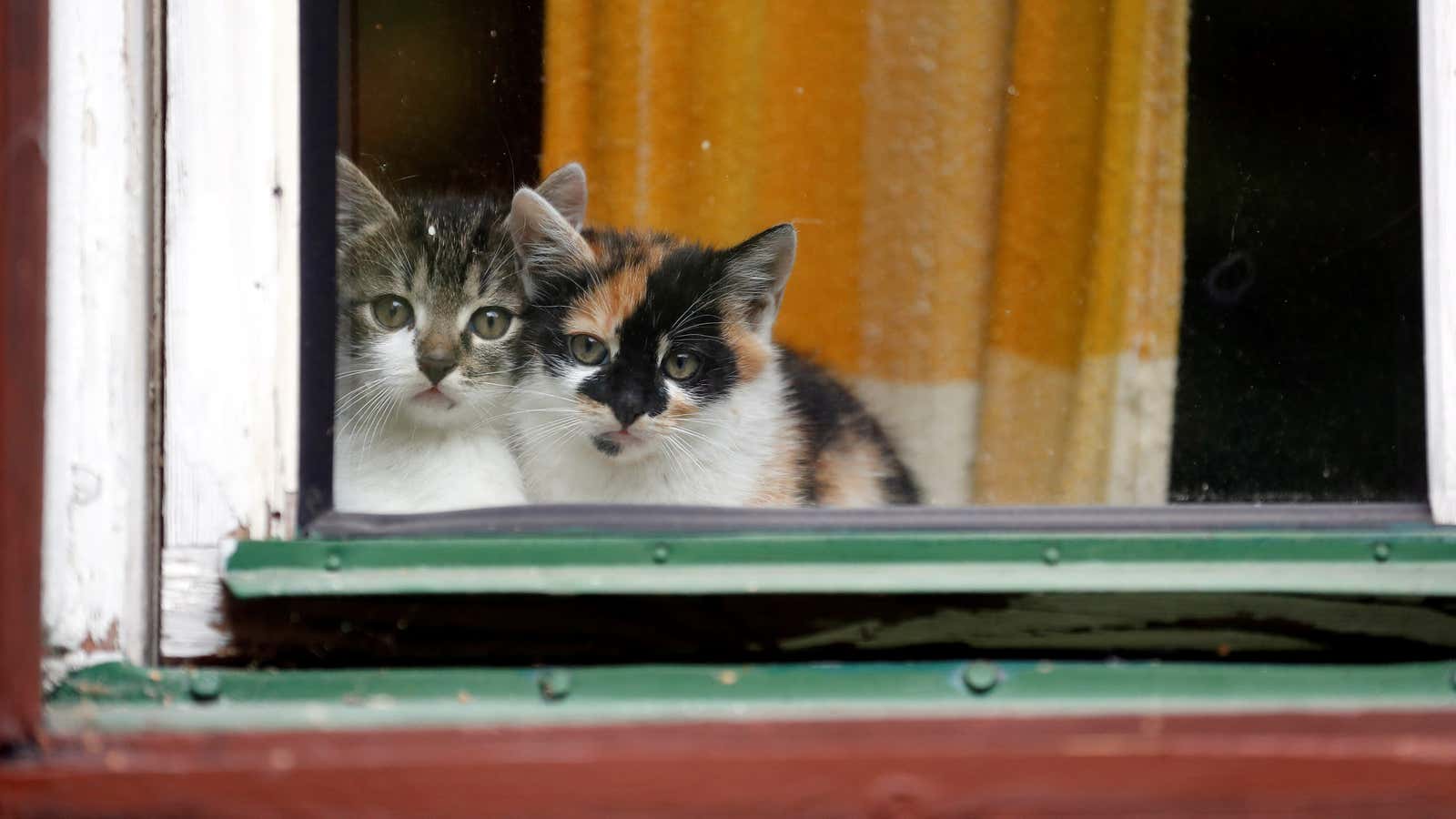Liu, a woman living in the northern Chinese city of Harbin, was hospitalized with Covid-19 on Sept. 21. A week later, local officials euthanized her three cats, sparking a huge debate about animals’ rights and how to treat Covid-positive pets under the country’s stringent coronavirus control policies.
In a post on Chinese social media this week, Liu said that residential committee workers—local governance bodies tasked with enforcing Covid-19 prevention—had informed her of her cats’ test results and told her that her pets would be put down because there were no “prior examples of animals receiving [Covid] treatment,” according to the Beijing News.
Liu’s cats, one Siamese cat and two exotic shorthair cats, have been with her for around six years. She told the outlet that she didn’t consent to the euthanasia. Despite that, the animals were put to death yesterday (Sept. 28). Facing a strong public backlash, the committee workers in Nangang, the district where Liu lives, defended their decision as vital to stopping the apartment from being a potential Covid reservoir. “In that case, the owner wouldn’t be able to come back to her home, neither can the residents in her unit or even the whole neighborhood, and the pandemic would never be able to end,” the workers told the Beijing News.
Feng Zijian, the deputy head of Chinese Center for Disease Control and Prevention, also backed the district-level decision. He told the outlet that once Covid-positive cats “release their virus” in a family it would be hard to completely extinguish it. If a cat has been found to be positive in repeated tests then it needs to be euthanized, said Feng. Under China’s pandemic prevention laws, pets can be killed when authorities deem necessary.
The decisions to test and then kill the cats is another demonstration of China’s strict approach of keeping Covid cases as close to zero as possible while some countries have shifted to monitoring deaths or serious illness rather than absolute case numbers. But the zealous approach isn’t uniform across China, where pet ownership is on the rise, and last year the agriculture ministry reclassified dogs from livestock to pets.
According to the US Centers for Disease Control and Prevention, only a small number of animals worldwide have been infected with Covid-19 mostly through people who carry the virus, while the risk of them spreading it to humans is considered low. Cats have a higher rate of catching the virus than dogs, according to veterinary epidemiologists, and ferrets are of greater concern.
Though there haven’t been extensive studies on best practices for Covid-positive pets, testing and culling pets appear to be an outlier. The Mayo Clinic, an academic medical center, recommends that pets be isolated in a room away from other family members, and that owners wear gloves when interacting with them. The clinic notes that among dogs or cats that caught the virus, some didn’t show any symptoms, while the ill ones experienced mild symptoms, and none died. The US FDA recommends against the routine testing of pets. Some big cats in zoos have been tested for Covid-19 after showing symptoms, which later went away.
The deaths of Liu’s cats sparked a fierce debate online. Some said they agreed with the decision, citing China’s huge sacrifices to fight Covid, and arguing that the country has no spare energy to study the ideal treatment of animals during a pandemic. Others said the episode is an example of lazy governance, and the government should develop a more humane and standardized approach.
“The virus situation is still severe overseas, but have you heard even one incident of pets being euthanized?…For households with pets, the animals are their family members,” said a Weibo user.
Early last year when the pandemic began, volunteers broke into homes in Wuhan to take care of people’s pets while they were in quarantine. And after public pushback against some local bans on pets and their owners quarantining together, a Beijing district said early this year that one family member could stay at home to take care of the pets while the others go to centralized quarantine venues. Ban Yue Tan, a state-owned publication, praised Shanghai’s decision in January to allow pet owners to quarantine together with their animals as demonstrating a more caring approach by authorities toward citizens.
